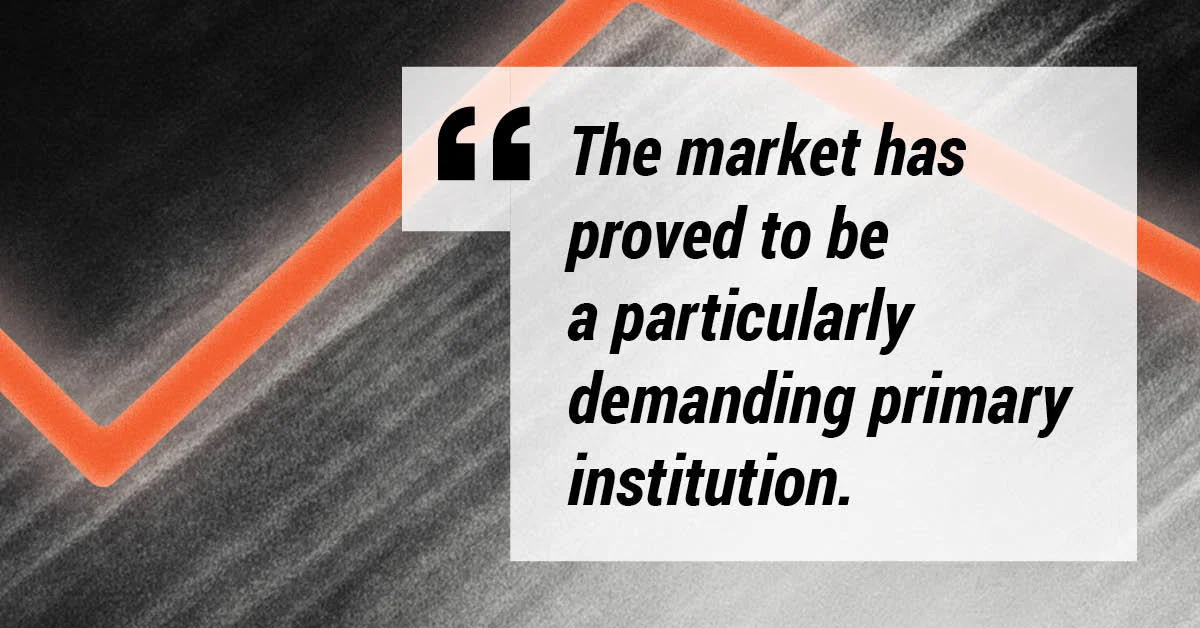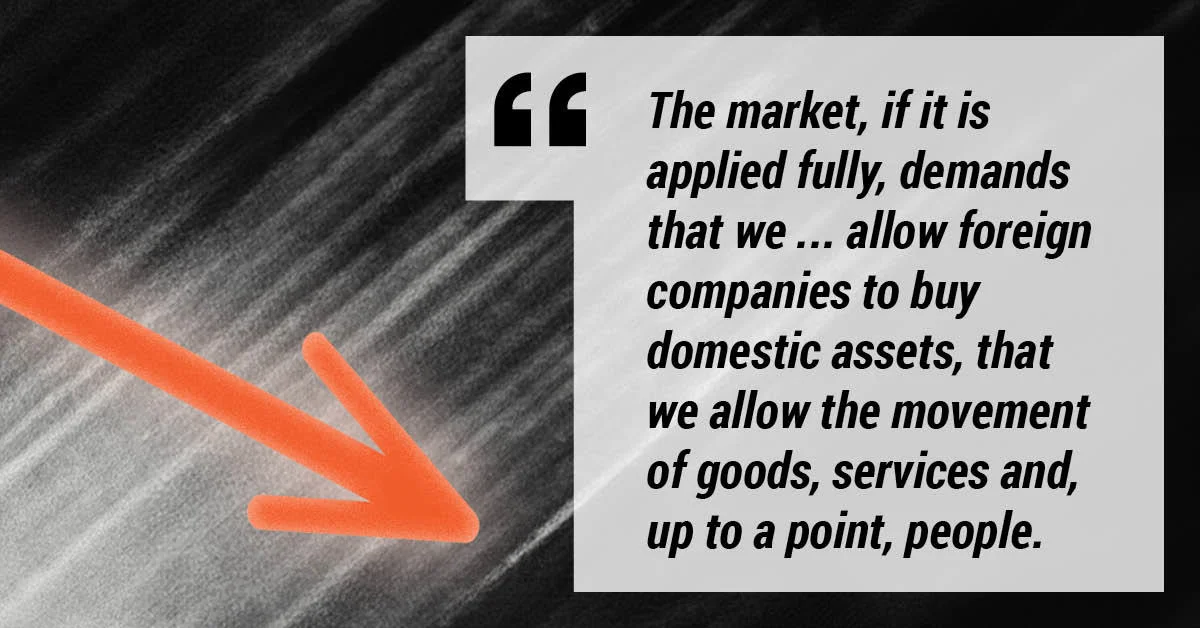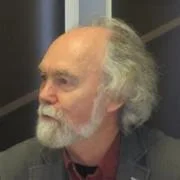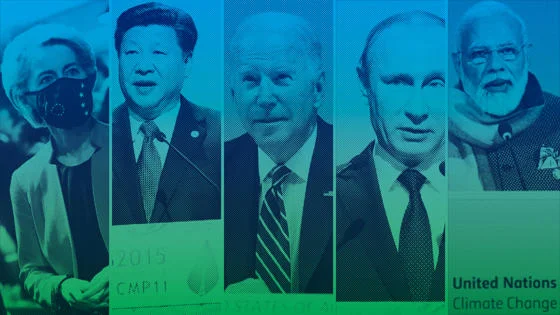The fluctuating fortunes of the market

Contents
Economic nationalism is on the rise. As powerful nations like the US move to prioritise and protect their own economic interests, the market, so supreme under neoliberalism, appears under threat. But what explains the changing fortunes of the market? Is it destined to remain volatile? Could it ever be stable in a time of great power conflict and economic strife?
In his new book, The Market in Global International Society, co-authored with Professor Barry Buzan, Professor Robert Falkner, Department of International Relations at LSE, traces the rise and fall of the market from its origins in the early 19th century to the present day.
Speaking at a recent Research Showcase, Professor Falkner explains that ‘‘what we want to do is put the market in historical context in this book, and try and understand where it came from, how it rose to such prominence, particularly in the 20th century, and where it’s headed now.’’

The market as a norm of international relations
Although many books explore the history of global capitalism, there has been far less attention paid to how the market plays out specifically in international relations. To address this gap, Professors Falkner and Buzan sought to bring together two fields – international political economy and the English School of International Relations (IR), an approach developed at LSE.
At the heart of their book is a particular understanding of ‘‘the market’’. The book distinguishes between three definitions. Firstly, the term could refer to a physical marketplace – whether a local street market or the London Stock Exchange. Secondly, it can be understood as a type of economic system, distinct from a command or planned economy, for instance.
What Professors Falkner and Buzan focus on in their book is the third definition: the market as a governance principle. ‘‘This is the idea that the market becomes a fundamental norm, not just of the economy, but of international relations’’.
As a governance principle, the market is, to use English School terminology, a ‘‘primary institution’’ that structures how states relate to one another. The term ‘‘institution’’ might bring to mind international organisations deliberately created by states to deal with problems collectively – for example, ‘‘the United Nations is meant to provide security, the World Trade Organization is meant to ensure free and regulated trade among nations’’. We can think of these as ‘‘secondary institutions’’ that establish a framework for international diplomacy and governance.
However, as Professor Falkner explains, ‘‘the English School of IR argues that beneath that level, there is a deeper level of institutional features – these are called primary institutions’’. Rather than being deliberately formed, like the UN or the WTO, these institutions emerge and evolve as norms or principles, defining ‘‘what it is to be a member of international society, a state … to conduct international affairs in a legitimate way.
‘‘We argue that the market should be conceptualised in the same way as other fundamental norms, such as sovereignty, territoriality, the balance of power, and war.’’

The rise and fall of the market
Fundamental norms, such as the market, are by no means permanent and unchanging. As Professor Falkner elaborates, ‘‘they have their own history. They come from somewhere … they emerge; they are adopted; they are consolidated. But then they may also die; they may weaken; they get challenged; they’re contested. Some of them are in the process of decay.’’
In their book, Professors Falkner and Buzan trace how the market has fared over the past 200 years. While the market norm in economic theory first emerged in the late 18th century through philosophers like Adam Smith, it is in the early 19th century that market principles began to enter international relations and became key to international trade and investment.
Following its rise, the first major setback for the market hit in the first half of the 20th century, when market relations became constrained during the two World Wars. The interwar years were also marked by rising protectionism and territorial expansion, pushing back market norms.
Following World War II, however, the market underwent a period of cautious renewal through the establishment of the Bretton Woods system. This embedded the market norm in the structures of the Western-dominated global international society, with some constraints.
Professor Falkner observes: ‘‘if we look at this picture, 200 years of the market norm, we see it arising and flourishing in the 19th century, then collapsing and retreating in the first half of the 20th century, and entering a period of compromise between political and economic dynamics during the Bretton Woods era.’’
However, the collapse of Bretton Woods in the early 1970s and the subsequent rise of neoliberalism heralded the triumph of the market. This period saw former Communist countries, such as China and the Soviet Union, begin to adopt market principles. Developing countries that had previously pursued a socialist developmental model similarly found themselves having to accept the market norm, whether through choice or coercion.
Yet, despite its seemingly unassailable position, the market could not maintain this dominance: ‘‘it certainly feels in the 1980s and 1990s as if the market reigns supreme, only to take a knocking again in the post-2008 era’’. The Global Financial Crisis of 2008 ultimately led to the retreat of the market in global finance. In the post-COVID era, we are seeing a growing shift away from the market towards greater state intervention in the domestic and global economy, and a general shift towards economic nationalism more recently.

Market volatility
What explains this rise and fall? Why is the market so volatile compared to other fundamental norms? As Professor Falkner explains, part of the reason is that ‘‘the market has proved to be a particularly demanding primary institution’’. This instability is to an extent inherent in the market due to the tremendous inequality and the financial crises that it tends to create.
From an IR perspective, however, the market also notably conflicts with other primary and secondary institutions of global international society. To be sure, the market gives a boost to economic diplomacy and international commercial law governing market exchange. But it can also strongly clash with other primary institutions, like territoriality, such as during the World Wars when Western states constrained market norms and implemented full war economies.
The most recent example is the tension between the market principle and a resurgence of nationalist sentiment. In the words of Professor Falkner, ‘‘nationalism is fundamentally opposed to a free-flowing market at the global level … the market, if it is applied fully, demands that we open territorial boundaries, reduce barriers to trade. That we allow foreign companies to buy domestic assets, that we allow the movement of goods, services and, up to a point, people.’’
This friction underpins the market’s volatile position today: ‘‘Great powers go through this cycle of having to rekindle market spirits to create the basis for their own political, economic and military power. But as soon as they allow market dynamics to run away in a global context, that comes up against their desire to control their territory, to safeguard their power, and to retain power gaps with other countries.’’ This tense and uncertain dynamic is playing out today with the proliferation of ‘‘Make Country X Great Again’’ policies, not just in the US but worldwide.
The market in an age of economic nationalism
Is it possible to reduce the volatility of the market, only heightened in an age of great power conflict and economic nationalism? Professor Falkner argues that ‘‘for the market to work as a norm of international society, it needs to be held in place by a firm political framework’’. The post-war Bretton Woods system perhaps stands as the strongest example of such a framework to manage the instability of the market, but this collapsed in the 1970s, in part due to its own internal contradictions.
For Professor Falkner, ‘‘the big question, I would argue, is whether we can ever agree on a Bretton Woods-style Mark 2 version of finding accommodation between the need for market economics to play itself out and the desire of most societies to retain some control over their economic fate. A kind of accommodation between the market principle and economic nationalism.
‘‘That, to me, is the biggest challenge we face in today’s global political economy, and we haven’t got to the answer yet.’’
This Research Showcase talk was written up by Rosemary Deller, Knowledge Exchange Support Manager at LSE.





